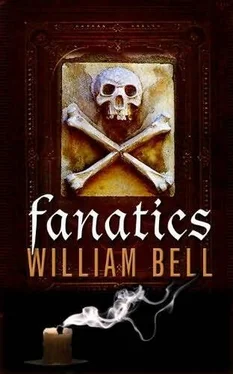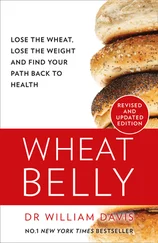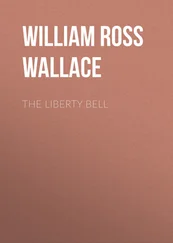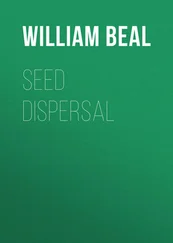Then I remembered the alcove on the other side of the room, and the cupboard built into the bookshelves.
Quickly, I crossed the floor, the little brass keys in my hand. The volumes flung onto the floor by the professor during his last seconds on earth were now stacked on the table in the alcove. I stepped between the table and the shelves on the north wall. The closely fitted cupboard door had a round wooden pull-and below the pull, a brass cabinet lock.
One of the keys opened the lock. I found a stack of small leather-bound books that would have made my father exclaim “Aha!” as he waggled his eyebrows. He loved old books, and sometimes added them to his collection rather than put them up for sale. I transferred the pile onto the table behind me and opened one book at random. It was a Greek-Latin dictionary, published in London in 1763. Assuming the rest were as valuable-or the professor wouldn’t have kept them under lock and key-I made a mental note to tell Mrs. Stoppini she would need the services of a rare books expert at some point.
I lifted out a stack of bundled papers, each bunch secured with ribbons, like a parcel. On closer examination, the paper turned out to be vellum-finely polished animal skin. The manuscripts had been penned by different people, and none was in English. Conscious of their value, I replaced them carefully. As I slid them back into the cupboard, my fingernail caught on something. I moved the manuscripts to the table again.
There was a large round knot in the board that formed the right-hand wall of the cupboard. In an otherwise top-quality bookshelf, why use a flawed piece of wood? Any cabinetmaker knows that knots-especially a big one like this-can come loose and even fall out over time as the wood dries. More important, the old vellum could be snagged just as my finger had been, and damaged. A lapse in cabinetmaking quality like this didn’t make sense.
I ran my finger across the surface of the knot. It was loose. And it was coated with a waxy substance. I pressed it. As I withdrew my finger, the knot came with it. I probed the hole. I felt something. Metal. I pushed.
And heard a barely audible click.
Then nothing.
Taking a step back, I scanned the shelves and uprights. Everything appeared as it should be-except for a barely noticeable gap that outlined three shelves and their uprights to the right of the cupboard. The gap hadn’t been there moments before.
I gripped the edge of a shelf between my finger and thumb and pulled. Silently, a section of the shelf unit, books and all, moved toward me like a hinged door, and I found myself looking at another cupboard set into the wall behind the bookshelves, this one secured by a locked metal roll-up door like you’d find on an old writing desk.
And then I heard a shrill ring.
Like a schoolboy caught with his hand in the teacher’s purse, I jumped back and snatched a glance toward the library doors, even though I couldn’t see them from the alcove. The ring trilled again.
My cell.
It was a text message: conf din arr 6 k? rs
I sent back k and closed the phone.
I took a breath and reminded myself that I wasn’t snooping. Well, not technically. I wasn’t prying into the professor’s private life. I was doing what I had agreed to do-make an inventory of the library-wasn’t I? The alcove was part of the library, wasn’t it?
The second key fit the lock and the door rolled up and behind the cupboard smoothly and silently, revealing two wide, deep shelves. The cupboard was like a strongbox-two layers of metal with insulation between. On the bottom shelf lay a messy pile of papers on top of a file case. The sheaf of paper was as thick as a brick, typed, I was willing to bet, on the old Underwood. The title page bore the word “Fanatics” over “by Professor Eduardo Corbizzi.” I set it aside.
A wine-coloured book with Compendium Revelationem on the spine in cracked gilt lettering rested on the top shelf beside a small container of inlaid wood. I took up the book, surprised by its heavy weight, and laid it on the table. It smelled of old leather and dust and ancient paper. I flipped through. The language wasn’t English. The last page was stained, but the words “Hieronymvs” and “Ferrara” were clear. Closer to the bottom I made out “Firenze” and “MCDXCV,” then “Ser Francesco Bonaccorsi.”
I turned back to the cupboard and opened the small, finely made box, finding a crudely cast medal, green with age, resting in a silk bed. On one side a pigeon-like bird with rays emanating from its head hung suspended in the sky, at the edge of a cloud. A raised line bisected the medal, separating the strange bird from a hand emerging from a cloud, clutching a dagger, its tip pointing toward a collection of buildings. The flip side showed the profile of a man gripping a crucifix with both hands, staring the haloed Jesus in the face. The man, wearing a cape with a hood that covered his hair and ears, had a prominent hooked nose, and the look in his eyes as he glowered at Jesus was anything but reverent.
Worn, almost illegible block letters in a foreign language followed the outside edge of the medal. I turned it slowly in my hands, squinting at the writing-which, like the lines in the red leather book, appeared at first to be English but wasn’t. Small diamond shapes were visible between some of the words.




HIERONYMVS SA followed by something illegible, EER ORD FREVIRI, and unclear marks, then DOCTISSIMVS.
Turning the coin over I read,





GLADIVS DOMINI SUP TERRA CITO ET





VELOCITER SPIRITVS ONI SUP TERRA COPIOSE SUDAT
“Interesting,” I whispered. “ ‘Hieronymvs’ appears on both the medal and in the book.”
I replaced the medal and carefully fitted the lid, then turned to the last article in the cupboard. It was heavy, wrapped in a black velvet cloth so soft the bulky object it enclosed almost slipped out of my hands. I found myself cradling an ornately tooled cross at least sixty centimetres high and encrusted with jewels. The dusky gold seemed to glow from within. Never in my life had I held something so valuable and beautiful.
On closer inspection, one of the jewels turned out to be a dome of clear but imperfect glass held to the base with clips, like a gem in a ring. The glass seemed to cover something brownish black, a kind of disk with a hole in the middle, that had been set into the gold.
Professor Corbizzi must have been a religious man as well as a secretive one, I thought, pushing the thick manuscript into the file case. I wound the string around the paper button, then replaced each object where I had found it and rolled down the door. I locked the cupboard and swung the bookcase door into position, hearing the solid but faint click of the catch. I placed the knot back in its spot and locked the outside cupboard, then slipped the keys under the rosary in the tobacco tin I had found in the escritoire. Carrying the damaged drawer, I left the library with relief, sliding the door shut and thinking about the strange cupboard’s contents and wondering if Mrs. Stoppini knew about them.
Читать дальше


























